By Abigail Malangone, Processing and Reference Archivist
On April 9, 1963, President John F. Kennedy conferred upon Sir Winston Churchill honorary citizenship of the United States. Although bestowing an honorary citizenship on one of the most admired leaders of the 20th century seems like it would’ve been a no-brainer at the time, it took some time for it to come to pass. One of the most diligent advocates for Winston Churchill’s citizenship was Kay Halle, a journalist, author, and a friend to both the Kennedy and Churchill families. She had been pushing for an honorary citizenship since 1957, and in her papers at the Kennedy Library, one can find a chronology of her efforts. You’ll note in these pages that in 1959 then Senator John F. Kennedy supported the idea of citizenship for Churchill.
While many supported the idea, there was a major legal question: was it constitutional? Back in 1784, the general assemblies of Maryland and Virginia granted honorary citizenship to the Marquis de Lafayette (yes, the Lancelot of the American revolutionary set); however, this was never formally proclaimed by the United States Congress or the federal government. Churchill would be the first official recipient of such an honor. Although an admirer of Churchill, President Kennedy wrote to Kay Halle and stated that the honor would be unconstitutional, but that they would name a ship after Churchill instead.
The summer of 1962 saw two resolutions introduced by Senators Jennings Randolph and Stephen Young authorizing the President of the United States to issue a proclamation declaring Sir Winston Churchill to be a honorary citizen of the United States, but by the fall of 1962 little progress had been made. However, thanks to the “unrelenting pressure of Miss Halle,” Arthur Schlesinger, Jr. informed the President that he asked the Justice Department to look into the problems of conferring honorary citizenship. By January 1963, the Department of Justice advised that honorary citizenship could be achieved in a constitutional way.
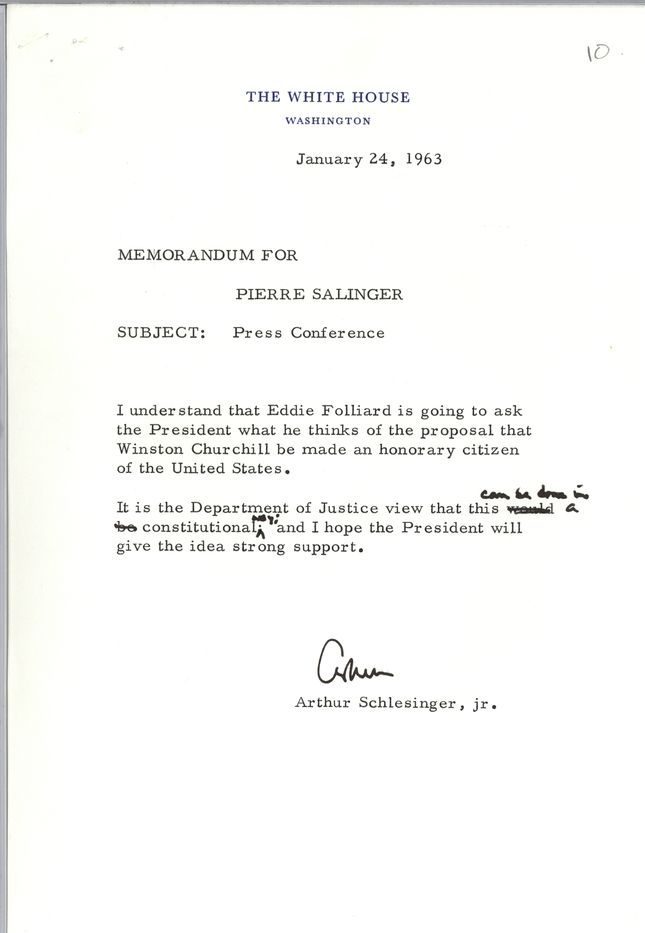
On March 12, 1963, the House of Representatives passed a bill 377 to 21 in favor a citizenship for Churchill, but in the Senate, a resolution put forth in January 1963 was languishing in the Judiciary Committee. Senator Young urged the Committee to act on the resolution citing Churchill’s advanced age as a concern. On April 2, 1963, the Senate passed the resolution without amendments.
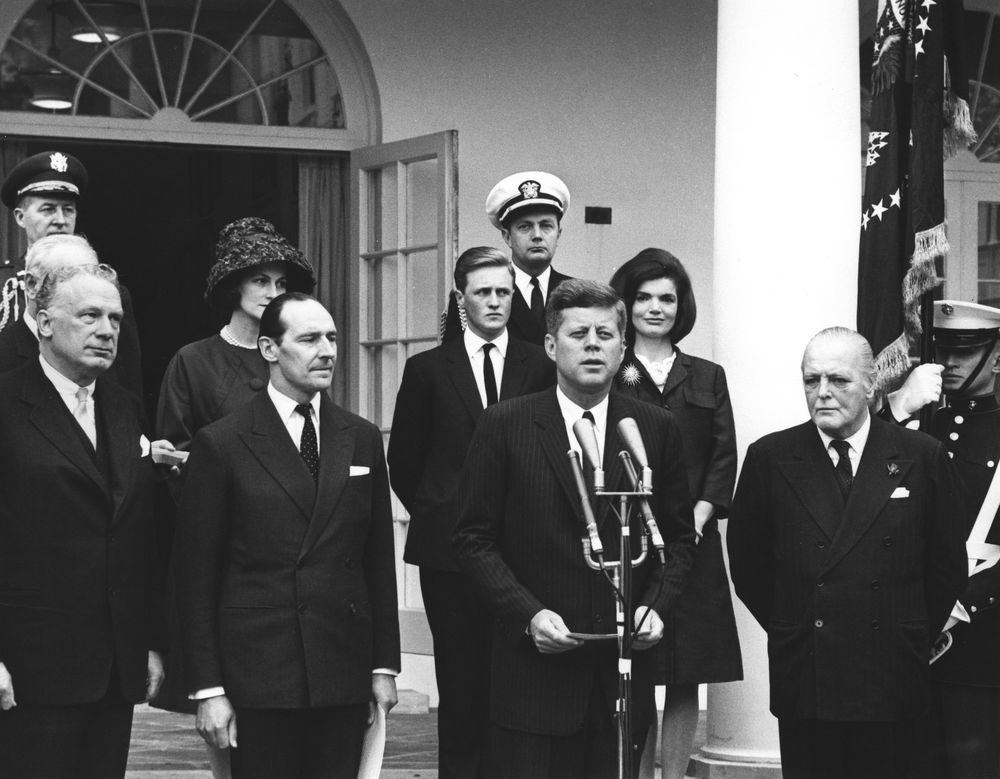
After all the obstacles had been overcome, planning for the ceremony moved quickly. Just seven days later, the President spoke at a ceremony in the Rose Garden in front of 250 guests. In his remarks, Kennedy extolled Churchill’s leadership, eloquence, courage, and commitment to liberty. He stated, “By adding his names to our rolls, we mean to honor him — but his acceptance honors us far more.” Following the President’s remarks, Randolph Churchill read a letter written by his father. In his letter, Sir Winston Churchill stated that he accepted this honor with deep affection and gratitude and stressed the important relationship between the two counties.
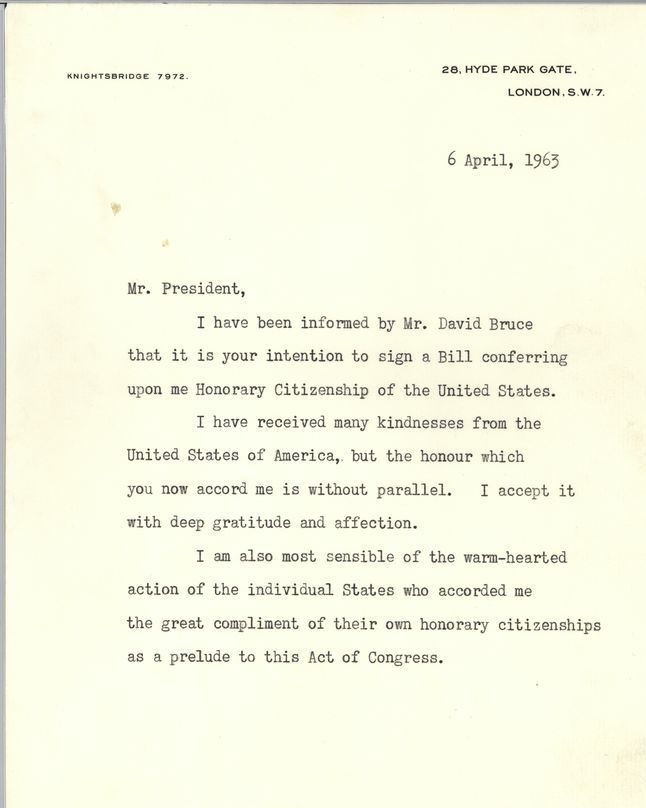
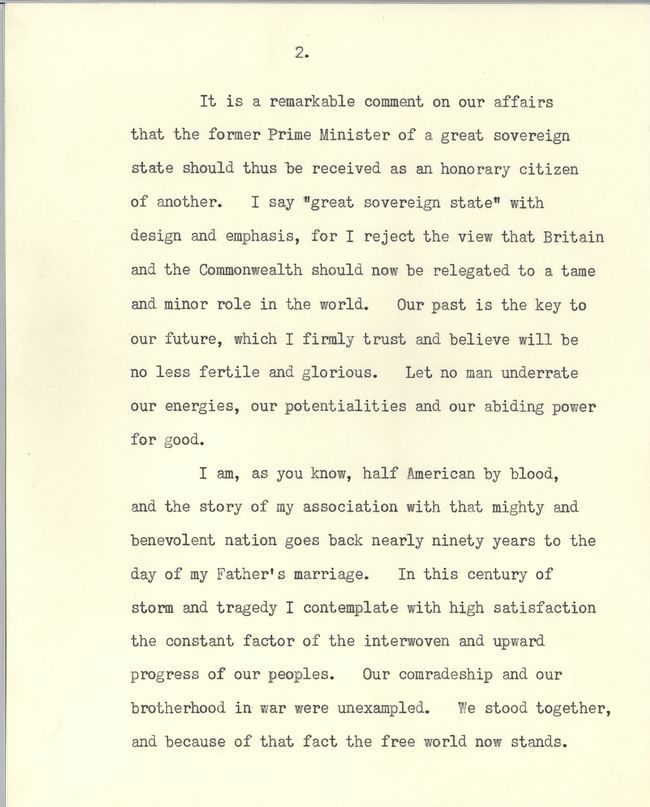
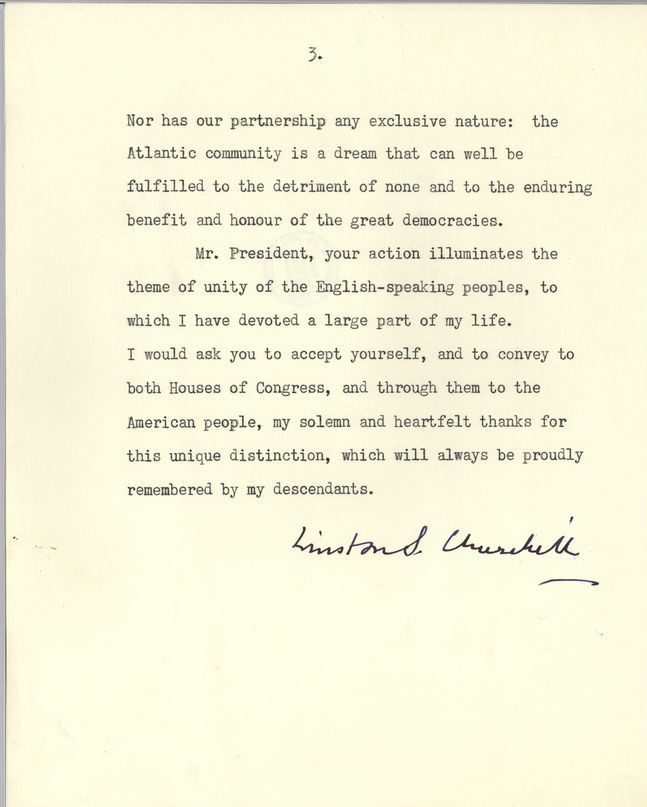
In the days following the ceremony, Churchill received the signed proclamation and the pen with which it was signed, as well as the signatures of those present at the ceremony. In his thank you note, he included a sentence that is sure to warm every archivist’s heart: “They will be cherished in my archives…”
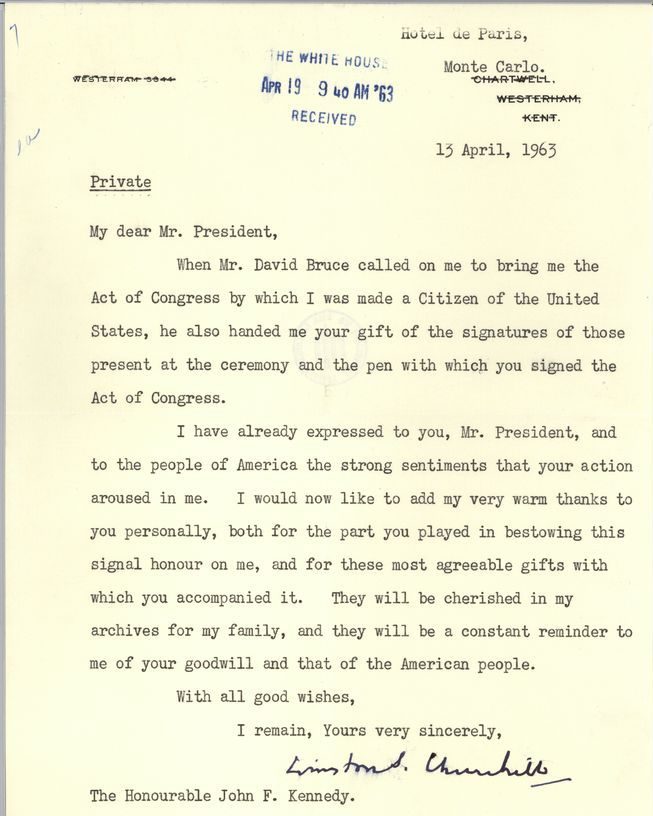
President Kennedy summed it up best when he stated, “For no statement or proclamation can enrich his name now — the name Sir Winston Churchill is already legend.”
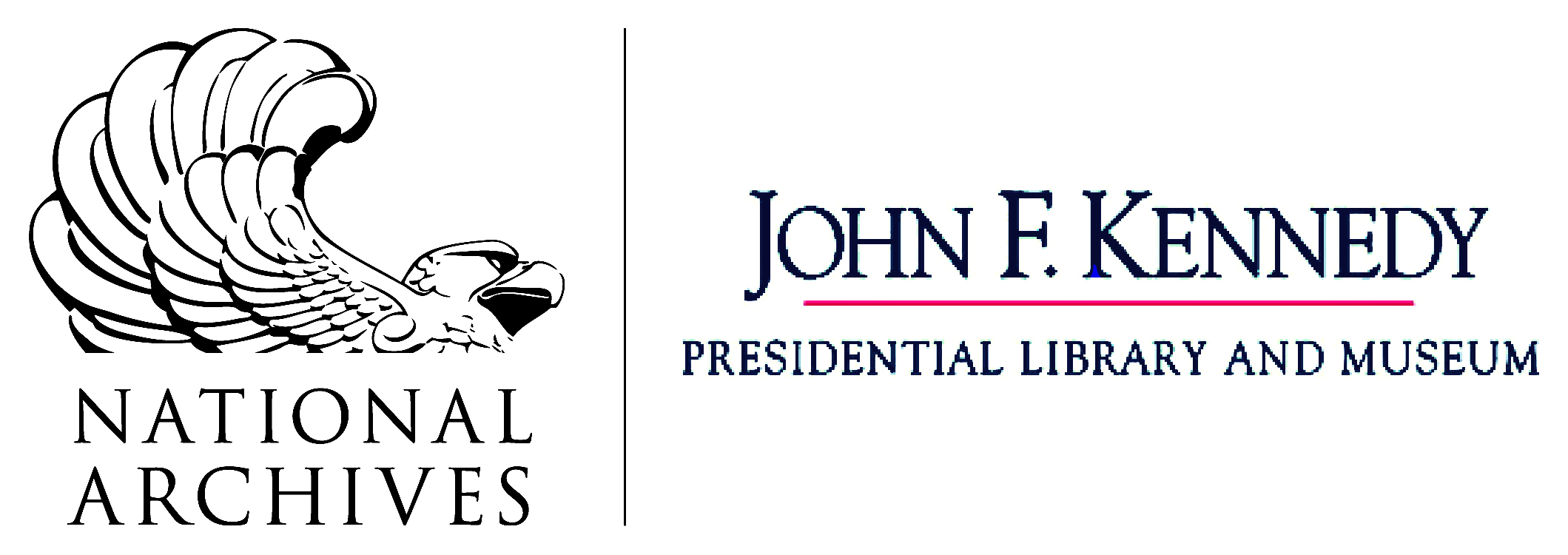
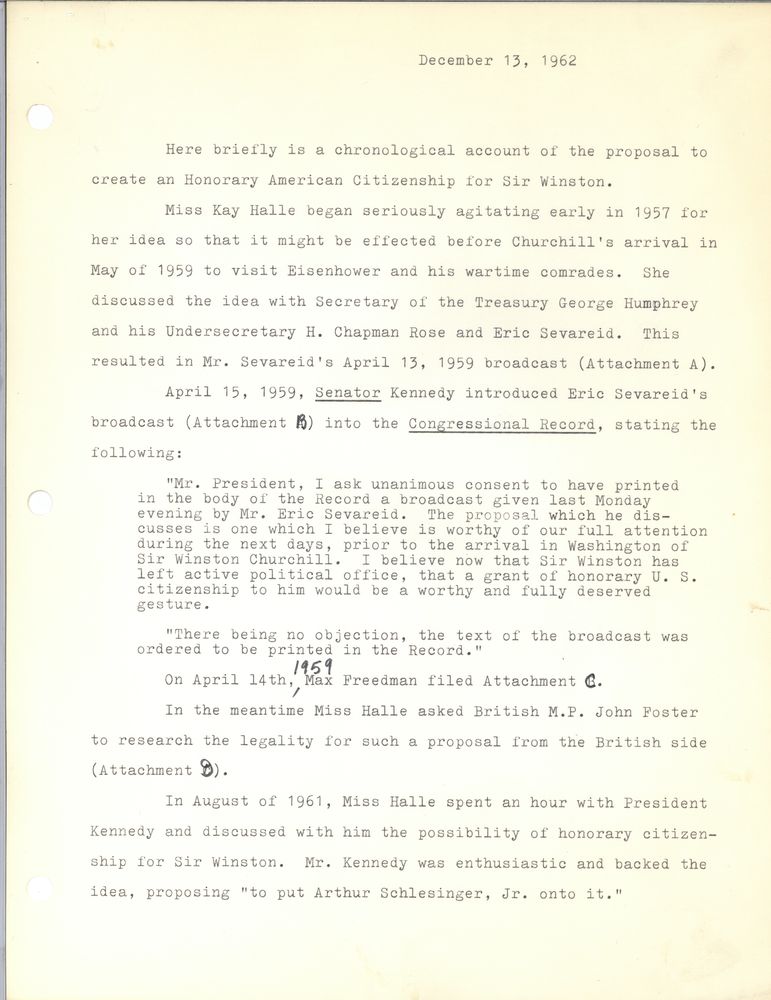
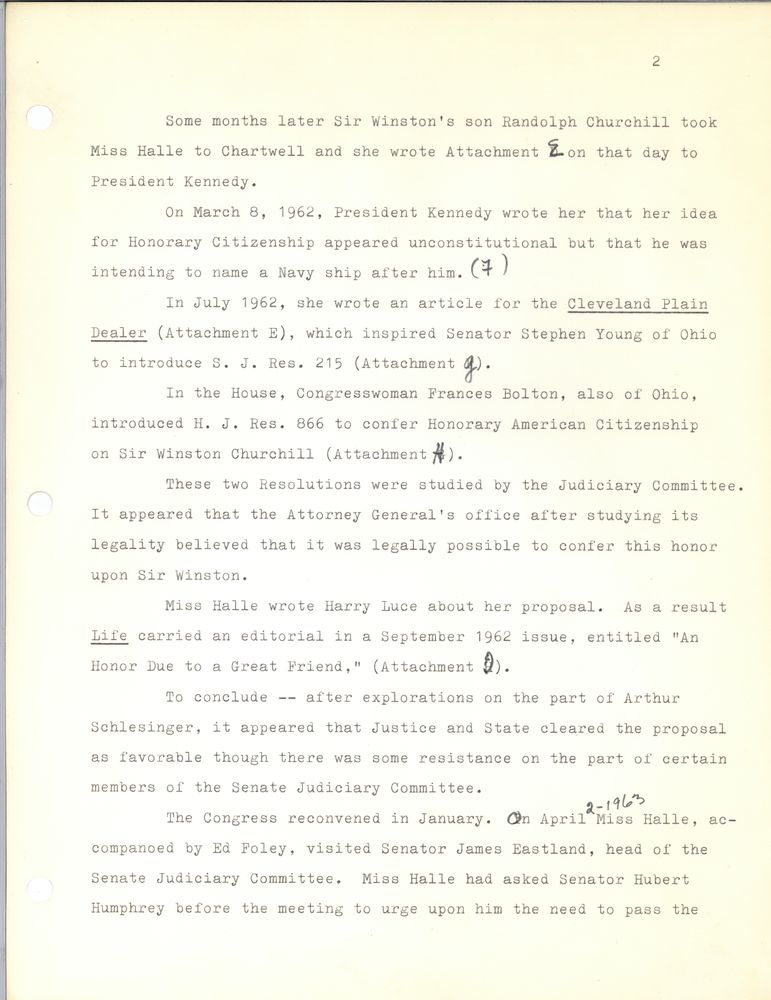
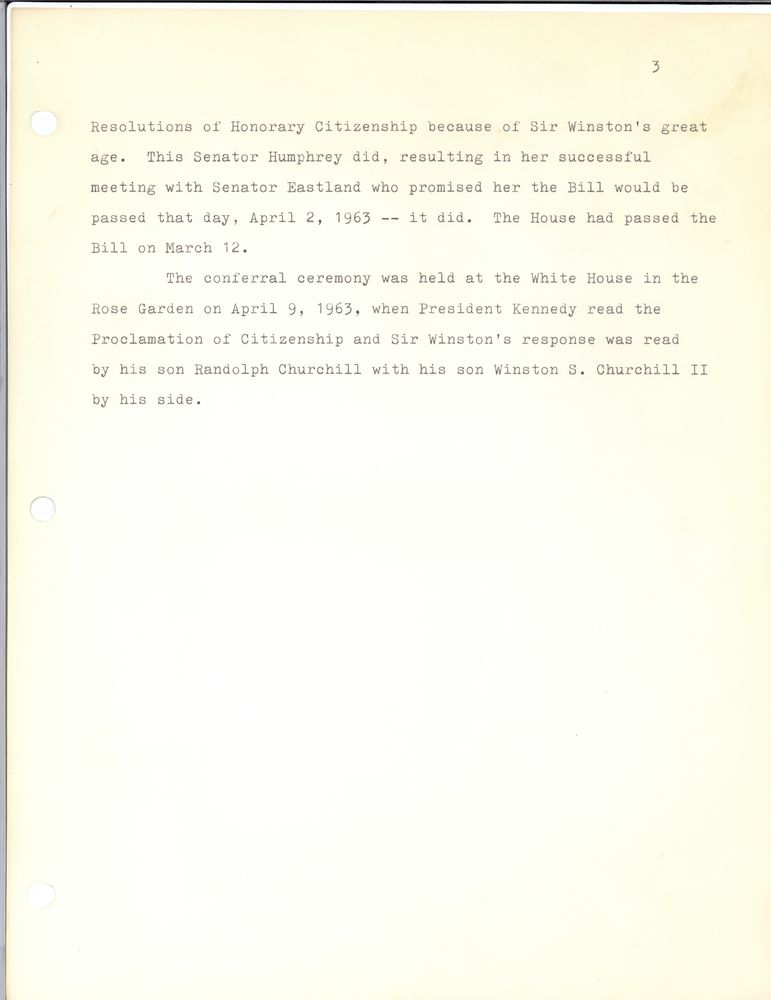
He will always be my President.
I was happy to be able to facilitate the donation of Kay Halle’s papers to NLK
She was a force of nature
[…] Franklin Roosevelt offered Americans a New Deal. With Harry Truman listening on, Winston Churchill (an honorary American) declared “a solemn moment for American Democracy” in his Iron Curtain speech. Ronald Reagan, […]
Sir Winston Churchill had an American mother. Accordingly, he should be given posthumous ”actual” U.S. citizenship.
He’d have to turn his knighthood into an honorary one, then.
My book WHEN LIONS ROAR: The Churchills and the Kennedys” (Crown 2014) details how this movement came together and relied on Kay Halle papers at the JFK Library. I spoke at the Library in 2014 when my book came out and it’s available on CSPAN’s website. Best Thomas Maier